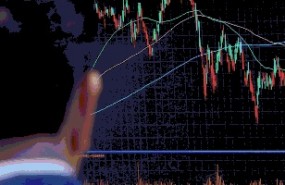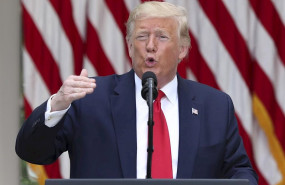
The Ibex regains 7,000 points, boosted by the banking sector that rises over 2%, after weighing down the selective with its performance last week. In other news, European stock markets are also rising, amid the tensions between China and the US due to the technological war in which the trade dispute between the two powers has become. The trading floors of the Old Continent will try to shake off these events, as well as the legislative conflict that is brewing in Washington, after the executive orders of the President of the United States, Donald Trump, to give out more aid against the pandemic.
The four decrees contemplate an additional benefit to the unemployed, a delay in the payment of payroll taxes, a moratorium on the repayment of student loans and a freeze on evictions from federal housing. However, Democrats question the constitutionality of such action.
At the business level, Banco Sabadell and Caixabank are the values that have risen the most on the Ibex, with increases of more than 3%, like the rest of the selective banks, which pull the whole index in this weekly start. Meliá also shoots up 3%. On the negative side, Cellnex, grifols and Endesa fall 0.5% on average.
This week some results are still waiting, such as Aramco, which has gained 73% less between April and June, but is already seeing signs of recovery. In Spain, investors will continue to be very aware of the Ibex majors, such as Telefónica and BBVA, and of tourist stocks, which experienced great volatility last week. In any case, "our selective cannot, it has no strength. And what is worse, less and less," says José María Rodriguez, an analyst at Bolsamanía.
"While we have many peso indices such as the Dax and S&P 500 near annual (and historical) highs we have rebounded, to the tick, to the 50% adjustment / retracement of the previous decline and from there we are deflating" , he continues. The banks are being the main culprits of the last corrective stretch "and we already know that without them we cannot get very far," says the expert.
"The perforation of the short-term support that we had at 7,060 points (now resistance) has done damage and if nothing remedies it, we cannot rule out a return to the annual lows at 5,814 points," he adds. "From the highs of the rebound (8,000) we find ourselves building decreasing highs and lows. And so it doesn't go up."



